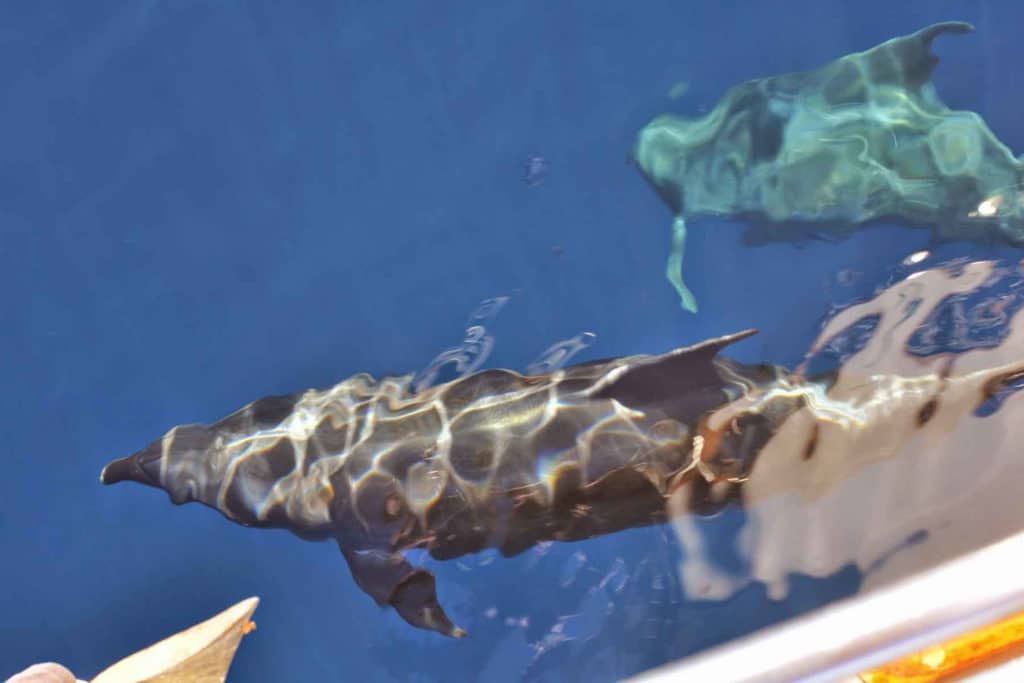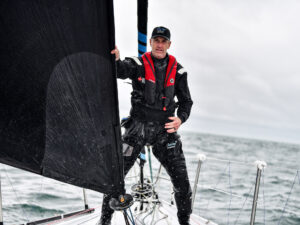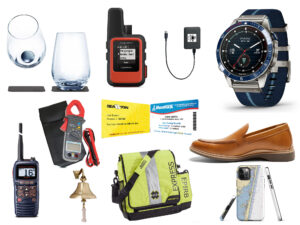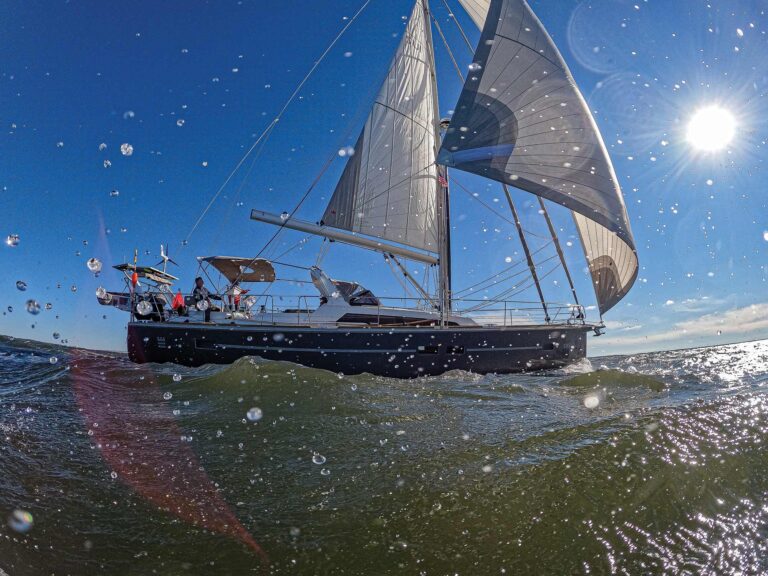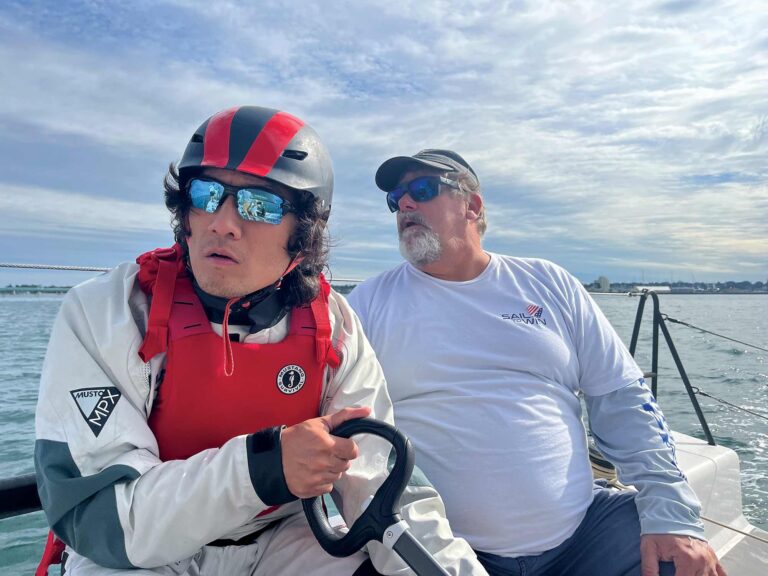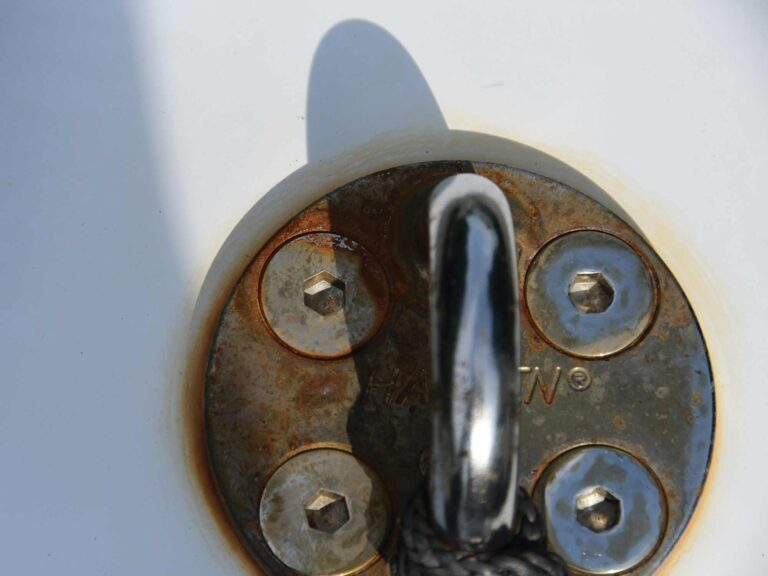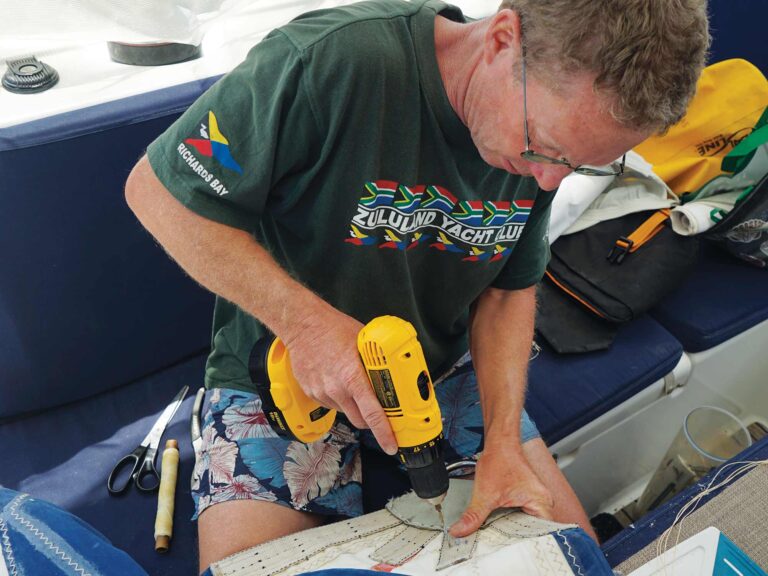We’re coming up on our four-year anniversary of leaving D.C. to go voyaging with our kids. During that time, we’ve bought a whole lot of marine-related gear for our boat. Most of that gear has stood up to the rigors of daily use by four people living aboard and cruising full time. Some of that gear has failed to perform in some way and we’ve had to deal with the manufacturer to resolve issues. This post is about the latter.
This is my report, based only on our experience, of how each of the manufacturers we’ve had to contact have responded to our post-purchase complaints and inquiries. I think this is important because despite the systems redundancy we have aboard, it’s always difficult to lose a piece of gear and challenging to coordinate shipping and such from out-of-country. In those cases, the service provided by a manufacturer can make all the difference. Take from my report what you will. The list is ordered alphabetically.
Alpenglow: Twice we’ve bought LED lights from this small, Montana-based manufacturer. We now have nine aboard and love them. For one purchase, we were out-of-country and Alpenglow willingly jumped through hoops to get them to us with minimal shipping and customs charges. On another occasion, they spent an inordinate amount of time emailing back and forth to help me brainstorm installation and configuration ideas. I wouldn’t hesitate to purchase from them again, but will note that the owners of this mom-and-pop company have since sold the business to go cruising.
Caframo: There were no cabin fans installed when we bought our boat. We did our due diligence before deciding on the Caframo Bora fans. On a couple occasions since buying them, the plastic base mounts they attach to have broken. The first time, I contacted Caframo via email and they sent a couple replacements at no charge. More recently, when another broke, I asked them to send me three and they again did so without question, at no charge.
Imtra: Our Lofrans Cayman horizontal windlass is circa 1970s. When we bought the boat, the previous owner reported that the chain would skip over the gypsy sometimes, whether deploying the anchor or retrieving. He was right, and it was plain to see why: the thing was mounted on deck, well below the height of the chain roller. This meant that the inside angle, measured from where the chain contacts the gypsy to where it rolls off it, was fewer than the 90 degrees specified by the manufacturer. I installed a 6-inch-high pad beneath the windlass and lowered our bow roller when we had a second one built. This helped, but only a bit. When I talked to Imtra (the U.S. rep for Lofrans), they forwarded pics to some of the old timers in Europe and helped us to identify our windlass and to solve the problem. They sent me a new gypsy to try (they weren’t sure it would fit our old model, nor that it was the problem) and that ended our problem (we paid for the gypsy, dearly). Imtra was unfailingly cooperative and helpful.
Polyform: This is a fender manufacturer. When ours died because of sun exposure, I contacted Polyform. I wasn’t sure how old they were, but I wondered whether they offered a lifetime warranty. They asked for a bunch of photos of the UV-damaged fenders and told me they were more than 20 years old (I don’t doubt this, they came with the boat). But they said they would ship us new ones for wholesale.
Portland Pudgy: This is the manufacturer of our exquisitely engineered combination polyethylene hard dinghy and life boat. When the lanyard eye on one of our access ports broke, this small Maine-based company sent us a new one at our request, at no charge.
Raymarine: When our handheld instrument repeater and autopilot remote failed out-of-the-blue, they asked us to send it in. After waiting for a long time and hearing nothing, I finally tried contacting them again. It took a lot of time and several emails for them to confirm they’d sent a replacement and to tell me when they sent it and who signed for it. I ultimately determined that they’d indeed sent us a replacement device, at no charge, but that our mail forwarding service provider (St. Brendan’s Isle) had misplaced it, never letting us know it was there. They weren’t the best communicators, but I can’t complain about the results.
Scepter: This is a Canadian manufacturer of plastic jerry cans. I contacted them via email when our flexible spouts began to fail. They asked for photos and then agreed to send us new ones free of charge. They were responsive and easy to deal with.
Farallon Electronics: This isn’t a manufacturer, but is a small, California-based rep for SCS, the German manufacturer of the PACTOR modem. The people in this tiny shop are PACTOR gurus and, like Imtra, have bent over backward to help us learn about and resolve issues with an old PACTOR II we bought from another cruiser.
Standard Horizon: Months before we left to go cruising, we bought direct from Standard Horizon their Matrix AIS-enabled VHF radio at the Annapolis boat show. It stayed packed away in the box for another year or so, when we finally installed it. It worked great. Then, in 2012, we bought the RAM3 remote mic for our cockpit. It worked great—until it didn’t. This past summer, the remote started to fail, acting weird. I talked to Standard Horizon and they said the problem was likely in our main radio, a non-owner-serviceable fuse. They’d seen this before. Then, before I could send it in (we’re in Mexico), the symptoms changed completely—the remote went dead as a doornail, and this despite my being able to measure voltage at the socket it plugs into. The house radio continued to work fine. At great expense and inconvenience, I decided to take a chance and send only the remote, so that we wouldn’t lose our house radio. Bingo, they got the remote, confirmed it was dead, fixed it at no charge, bench tested it, and sent it back. When I got it back, it was still completely inoperable.
“You must have a problem in your radio, send them both in.”
“Will you pay for shipping this time?”
They answered no. I sent both units in. They found a problem with the radio (the fuse and a transistor blown, apparently caused by connecting or disconnecting the remote while there is power going to the main radio).
They charged me to repair the radio (it was out of warranty, but I protested as the problem seems like a design defect and they lowered the repair charge from $65 to $35 and paid for the return shipping).
All along, communication was very good and very responsive.
Torqeedo: We love our German-made electric outboard. When it failed in Alaska, I contacted Torqeedo USA and they were great communicators. Based on my description of the problem, they offered right away that it was a manufacturing defect (a bearing case that was attached with glue that didn’t mate well with the solvent they used to clean the area first). They asked me to send it in. I asked if they would pay for shipping. They said no. I knew we’d arrive in Sitka in a couple weeks and could receive the package then. They told me when I’d have to get the motor to them in time for them to receive it, repair it, and get it to Sitka. I paid $95 dollars to send it to them. They confirmed receipt of the motor and then the communication withered until it died altogether. After a week in Sitka, walking to the post office every day and trying to reach Torqeedo, we sailed away without our outboard. Weeks later, when we got back in touch and got our outboard sent to us in Port Angeles, WA, it arrived with the plastic skeg busted off. They made me send pictures before they’d replace it, but they did send a replacement. The outboard has worked fine since. But in Mexico, when the Torqeedo-branded solar panel began to fail, I contacted them again. They were again excellent communicators, helping me to diagnose the likely problem. I sent in the panel and they sent a replacement, quickly and at no charge. The performance of the replacement panel makes it clear that the original was defective from day one.
In our twenties, we traded our boat for a house and our freedom for careers. In our thirties, we lived the American dream. In our forties, we woke and traded our house for a boat and our careers for freedom. And here we are. Click here to read more from the Log of Del Viento.
